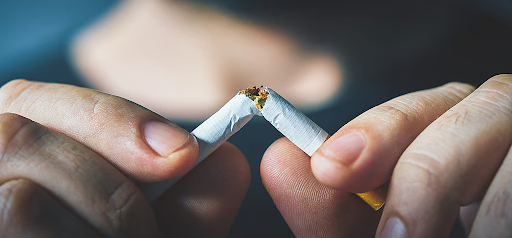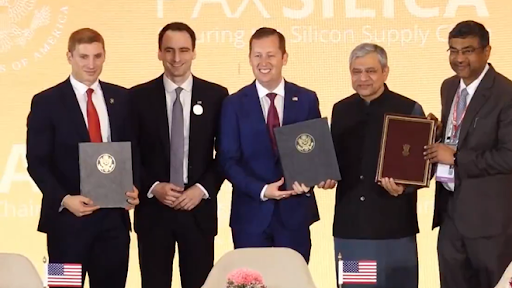



The Maldives has become the first country to implement a generational tobacco ban, prohibiting the sale and use of tobacco for anyone born after January 1, 2007, aiming to create a tobacco-free generation and advance WHO Framework Convention on Tobacco Control (WHO FCTC) objectives.

Copyright infringement not intended
Picture Courtesy: DOWNTOEARTH
Maldives introduced a "generational ban" on tobacco, making it illegal for anyone born on or after January 1, 2007, to purchase tobacco products.
A generational tobacco ban prohibits the sale of tobacco to individuals born after a specific cutoff year, ensuring that younger generations never gain legal access to tobacco products.
This gradually eliminates tobacco use as older users age out and younger people are legally restricted from starting, creating a “tobacco-free generation.”
|
New Zealand had passed a similar generational ban in 2022 for those born after 2009, but the policy was repealed in 2024 due to concerns over enforcement, black markets, and economic impacts. |
Global initiatives primarily led by the World Health Organization (WHO) through the WHO Framework Convention on Tobacco Control (WHO FCTC) and its operational tool, the MPOWER package.
The WHO FCTC, adopted in 2003, is the first international public health treaty, provides a legal framework for countries to implement tobacco control policies based on evidence.
In 2007, the WHO introduced MPOWER, a set of six cost-effective measures to help countries implement FCTC provisions:
The Bloomberg Initiative to Reduce Tobacco Use provides funding and technical support.
The Global Alliance for Tobacco Control (GATC), a network of civil society organizations, advocates for FCTC implementation and integrating tobacco control into the UN Sustainable Development Goals.
World No Tobacco Day is an annual event on May 31st to raise awareness.
|
WHO Report on Tobacco Use
|
Improved Public Health: Reduced new smokers will lead to a long-term decline in tobacco-related illnesses like lung cancer and heart disease.
Lower Healthcare Costs: Reducing tobacco use will ease the financial strain on public healthcare systems, freeing resources for other health priorities.
Economic and Productivity Gains: Fewer tobacco-related deaths and illnesses can lead to a healthier, more productive workforce and improved national economic output.
Environmental Benefits: Reduced tobacco consumption means fewer cigarette butts, less litter, and cleaner public spaces.
Risk of Black Markets: Restricting legal access may encourage illicit tobacco trade, complicating enforcement and exposing youth to unregulated products.
Enforcement Difficulties: Monitoring age-based sales restrictions across decades will require robust systems and sustained law enforcement capacity.
Economic Losses for Retailers: Businesses dependent on tobacco sales could suffer short-term financial losses and job cuts.
Scale of the Problem
India, the world's second-largest tobacco consumer and producer, faces a major public health crisis with over 267 million users and 1.3 million annual tobacco-related deaths. (Source: WHO)
Strengthening Existing Laws
The Cigarettes and Other Tobacco Products Act (COTPA), 2003, could be updated by raising the legal purchase age from 18 to 21 years, and tightening penalties for underage sales.
Exploring Localized Models
While a nationwide generational ban may be difficult in India, pilot projects in select districts or around schools and colleges could test the concept’s feasibility.
Combating Illicit Trade
Any move toward tougher restrictions must address the existing black market for tobacco products through stronger enforcement and tracking mechanisms.
|
Read all about: Tobacco Epidemic in India |
The Maldives implemented a generational tobacco ban to eliminate future addiction, facing enforcement and black market challenges. Long-term benefits include reduced disease, lower healthcare costs, and environmental protection. This policy offers lessons for countries like India in combating tobacco-related health issues.
Source: DOWNTOEARTH
|
PRACTICE QUESTION Q. What is the central characteristic of a "generational" tobacco ban? A) It bans all tobacco sales for a single, pre-determined generation of adults. B) It requires all people, regardless of age, to stop smoking immediately. C) It prohibits anyone born after a specific date from ever legally buying tobacco products. D) It bans the sale of cigarettes, not other forms of tobacco like vaping. Answer: C Explanation: A generational tobacco ban permanently prohibits the sale of tobacco to a specific demographic based on their birth year, aiming to gradually eliminate tobacco use. The Maldives, for example, has banned anyone born on or after January 1, 2007, from buying, using, or selling tobacco. |
The Maldives is the first country to successfully enforce a nationwide generational tobacco prohibition. While New Zealand was the first to pass such legislation in 2022, it was repealed in 2023 before it could be implemented.
A generational ban means that individuals born after a specific cutoff date are permanently prohibited from legally buying, using, or being sold tobacco products, even after they reach the legal age of adulthood.
The minimum legal age for purchasing tobacco products in India is 18 years. Selling to or by a minor is a punishable offence.




© 2026 iasgyan. All right reserved